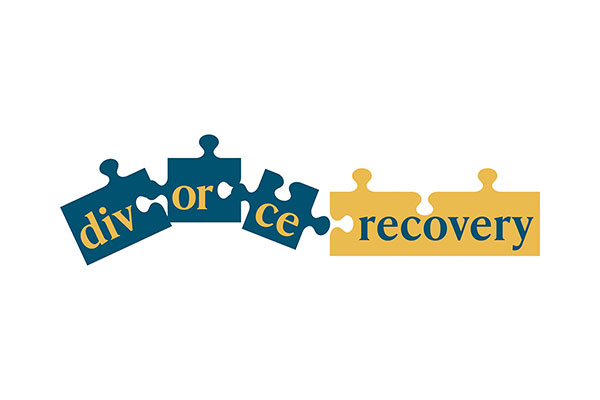It’s not easy to know the right things to say to someone with depression. The act of reaching out alone is hard. In this post, we will talk about the statements someone who is depressed might find helpful to hear and how you, as someone who cares, should carry out your approach to help them with their clinical depression and anxiety treatment.
Show Empathy
Empathy is putting yourself in another person’s shoes or position. Think about how you would feel if you were coping with depressive symptoms and how you would want people around you to react. By responding with openness and empathy, you show them that they are not a burden.
Listen to them and maintain eye contact as you do. You can respond with statements like
- I’m sorry you are going through that. It sounds hard.
- I’m always here to listen and help if you need somebody.
Ask the Person If They Want to Talk
People with depression may find it hard to reach out to others for help. Offering your time and listening ears can open their doors to the idea of venting out pent-up feelings.
When your loved one or friend agrees to talk, make sure to listen without interrupting. People with depressive symptoms just need to talk and do not need any advice or immediate solution.
Practice Assertive Communication
Learn the art of assertive communication. Take charge of your emotions and concerns and communicate them without accusation or blame. Statements like these will allow you to provide emotional support to a loved one with depression:
- I’ve noticed…
- I’m worried…
- I’m concerned…
Tell the Person You Care
To someone who feels like the world is against them, the words, I care, can mean so much. Sitting next to them or giving them a hug can send this message across when you can’t bring yourself to say the words. Your action or words should simply come from a place of acceptance and compassion.
Ask How You Can Help
Depression may leave a person exhausted and without the drive to take care of their basic needs. You can ask specific questions like the following to offer help:
- Do you need help with chores?
- Do you want me to come and buy groceries with you?
- Should I come over so you have company?
- Would you like me to drive you to your therapist?
Be Patient
The state of depression is not a hopeless situation. Like physical ailments, it can be treated with the right medical help and support network. But the process takes time.
It’s going to be a cycle of frustration, progress, setbacks, and feelings of giving up. You need to be patient to help your friend through.
Set Boundaries
Being there for your loved one with depression does not mean you have to neglect your life. It’s alright to set boundaries such as being specific about when you can or cannot be present. Don’t accept manipulative, abusive, or violent behavior. You have to take care of yourself as well so you can keep helping when the going gets tough. Otherwise, you may also spiral into a pit of emotional distress.
There is such a thing as caregiver stress and burnout. It’s what happens to someone who constantly supports another to the point of being disheartened and emotionally exhausted. Supporting someone with depression can drain you. Set limits and know when to replenish your energy.
Do Not Take Everything Personally
It’s possible that even with empathic words and actions, your loved one can still say hurtful things to you. Negativity is part of depression. He or she can snap at you as you are the most convenient target. But try not to take it personally and, instead, keep calm.
Give your friend or family member time and space and continue to provide support when needed.
Remind Them That They Are Important
Feeling like they don’t matter and that no one would care if they’re gone is common among those who are depressed. Try to remind your friend or loved one that they do matter. Reminding them how they have touched your life will help remind them of their value.
Don’t Force Them to Talk About Their Thoughts or Emotions
People with depression have their minds set that no one would understand them or that their situation is embarrassing. Thus, sharing how they feel and what they think is a struggle for them.
As part of his or her support network, you should avoid the words, If you don’t talk about it, then how can I help you? Just let your loved one know you’re open for a conversation when he or she is ready. You can also offer to do diversion activities, like painting together or a walk in the park, to lift his or her mood.
Tell Them That Their Emotions Are Valid
You have to approach depression without judgment. Even when the problem seems minute to you, fight the urge to judge or come up with short-term solutions. Biochemical imbalances associated with depression are what drive the negative way of thinking, but the emotions are real—their depressive problems are real to them just as how your everyday struggles are real to you.
Reassurance is what they need. Tell them that it’s okay to feel the way they feel and that there is light at the end of the tunnel. Do not brush off their words no matter how irrelevant they may seem to you.
Be Direct
Sometimes, the simplest way to reach out to a person with depression is to ask directly if they are depressed. But do so in a non-threatening and non-accusing tone. Let them know that your question comes from a place of genuine care for them and that you want to help.
Bottomline
Depression is a mental health condition that can be debilitating to those severely affected. It leaves its patients feeling weak and helpless.
Lending concrete and practical support is a great way to help. Structured clinical assistance for both depression and anxiety treatment has also proven its effectiveness for many years. If you know someone who needs such help, you can refer them to Keil Psych Group in Newport Beach.
Our practice can help people with anxiety, depression, post-traumatic stress disorder (PTSD), addiction, and stress management issues. To schedule an initial appointment with us, contact us at 714-334-5497 at Keil Psych Group today!!





